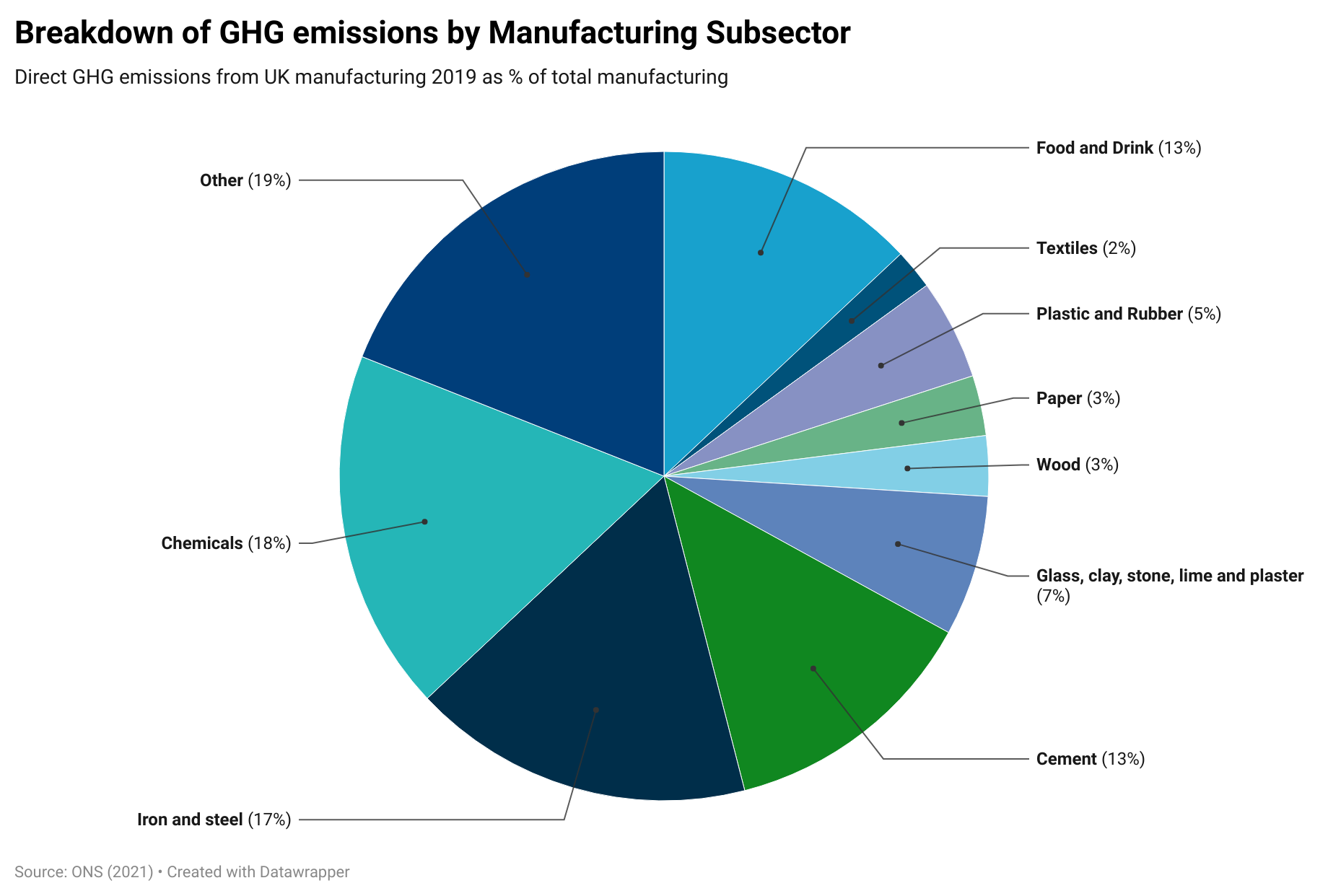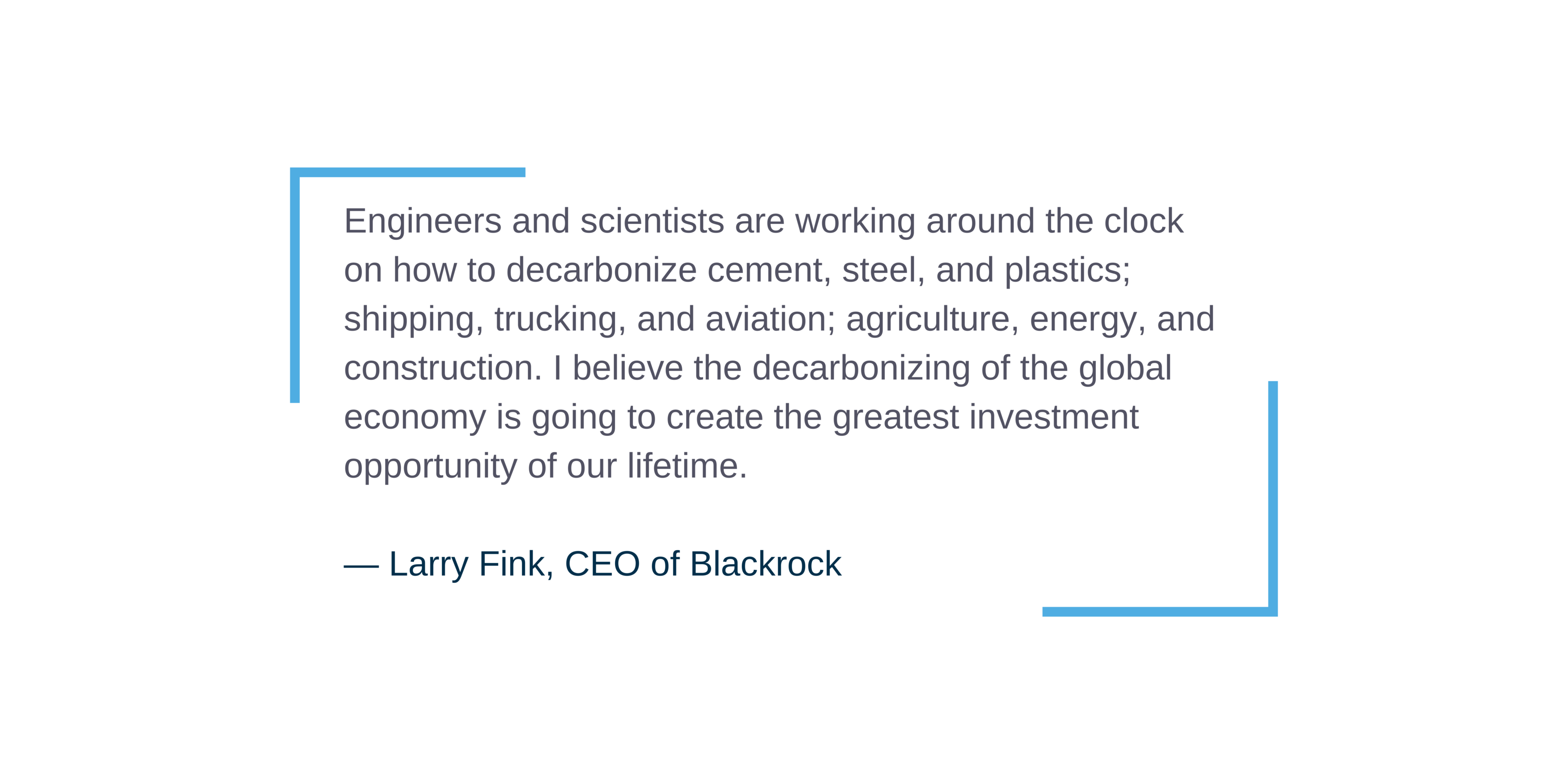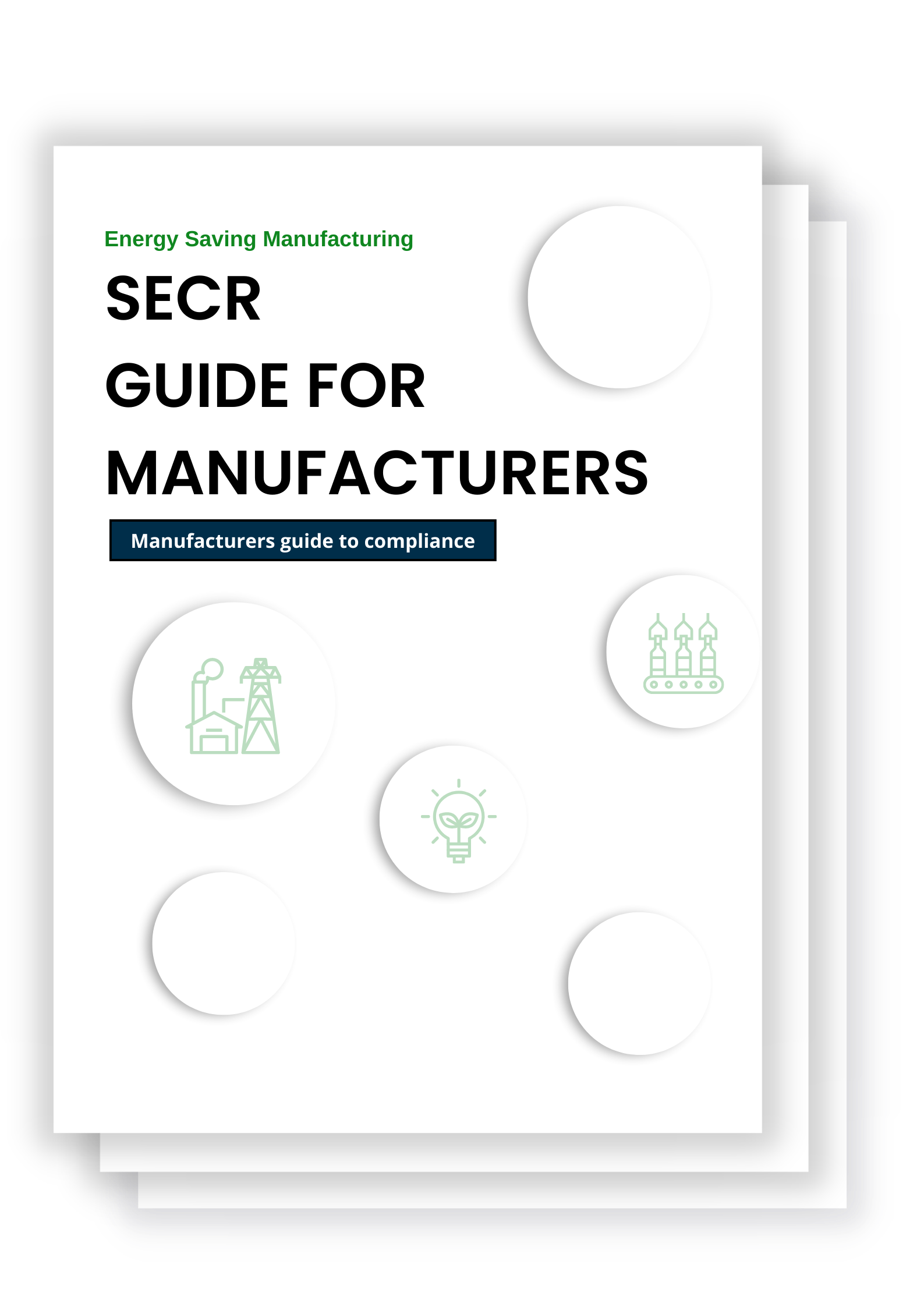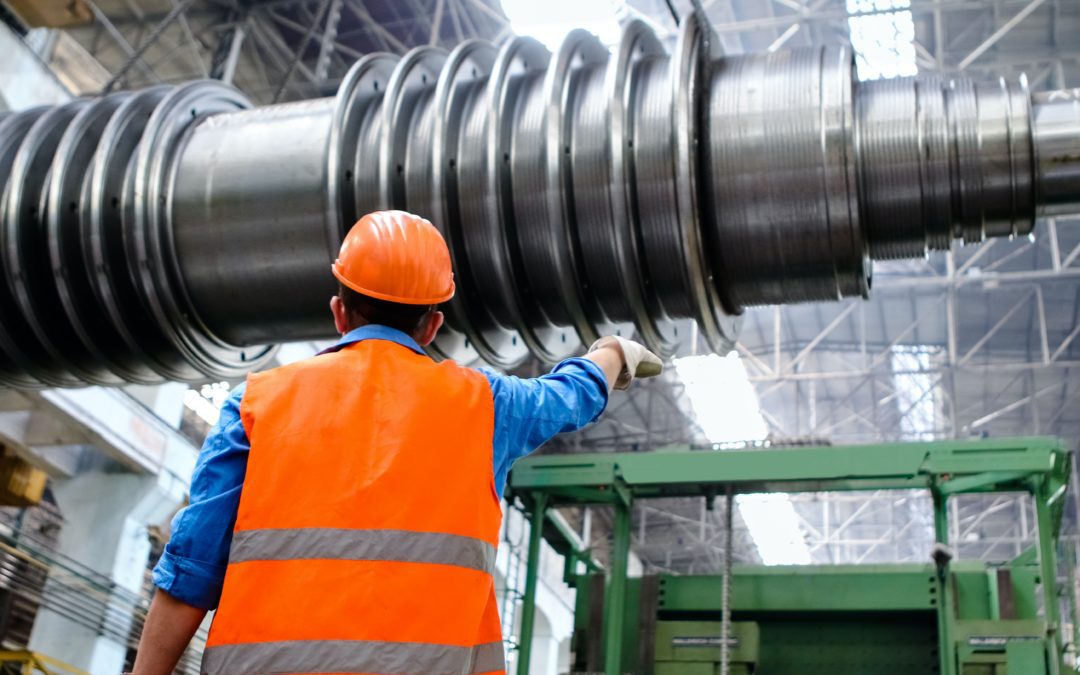The UK has committed to achieving Net Zero greenhouse gas (GHG) emissions by 2050, meaning as close to 100% reduction in emissions as possible, with any remaining emissions being dealt with through carbon offsetting. The Government has also set a legally binding interim target of reducing the UK’s emissions by 78% by 2035 compared to 1990 levels.
The manufacturing sector is a key component of the UK economy, representing over half of UK exports. However, it is also one of the most emission intensive sectors and is an area of the economy with significant GHG emissions that has so far proven difficult to decarbonise. This makes it even more important that the sector adapt and innovate to reach Net Zero. While rapid progress has been made in the electricity sector, with major breakthroughs in renewables, many high-level heating and industrial processes have yet to achieve a low-carbon breakthrough at scale. In 2019, manufacturing sectors represented 12% of the UK’s direct emissions, 98.6% of which came from CO2. Of that 12%, 48% of emissions come from chemicals (18%), iron and steel (17%) and cement (13%).

Historically, the UK manufacturing sector has made promising steps towards Net Zero, having reduced GHG emissions by 57% since 1990, despite a 10% increase in output. However, further reductions are unlikely without significant disruptions to the sector.
The UK independent advisory body, the Climate Change Committee (CCC), analysed the cause of the emissions reduction that was seen in the whole industry sector between 2009 and 2017. They found that 50% of the reductions came from reduced energy intensity, while 25% of the reduction was due to changes in the fuel mix, so that just a quarter came from structural change in industrial output.
So how can SECR help manufacturers?
The Streamlined Energy & Carbon Reporting (SECR) is a piece of legislation from the UK Government which replaced the Carbon Reduction Commitment (CRC) and has been a legal requirement for quoted and companies as well as unquoted companies and large LLPs since 1st April 2019.
Being such a high emission sector, there is increased pressure from investors, customers and employees to improve commitment to sustainability. Although there are risks associated with efforts to mitigate carbon emissions, such as more money spent on new resources, it also creates opportunities to grow business elsewhere as a result.
Although SECR might be an administrative hassle in the short-term, it can provide visibility over your processes and make reaching sustainability goals easier. Going the extra mile to decarbonise now will mean a more sustainable, more appealing, and more competitive organisation in the long run. The aim for SECR is to simplify carbon reporting whilst highlighting to companies where they could reduce energy costs, emissions, and fuel consumption. It is an opportunity to make energy policy and management decisions to benefit the company and the planet.
Show stakeholders you’re taking sustainability seriously
Shifting public opinion and changing government legislation mean that it’s not only customers who now demand businesses to be eco-friendlier. In fact, BlackRock – one of the world’s largest asset managers – recently made sustainability a main priority for investing in organisations. Creating a sustainable business model is becoming increasingly important, not just for the future of the planet, but for building positive and long-lasting relationships with stakeholders.

As well as external stakeholders, SECR aims to raise awareness amongst key internal decision makers, with the report requiring board-level sign off. The standard requires businesses to report their carbon emissions through their annual report, but even though there are no requirements to reduce the emissions, needing to report them gives visibility over environmental weaknesses in the business and provides a direction for change. While energy managers can often find it difficult to engage the executive team in discussions around energy consumption, the public nature of SECR highlights potential for reputational damage if no action is taken.
Not only does SECR highlight environmental weaknesses but it enables energy managers to create a clear and transparent process that the Directors’ can use for reporting. It provides an opportunity to lay out the financial impact of carbon use, creating incentive for channelling investment in energy-saving projects.
Reap the rewards of lower consumption in the long-term
Energy efficiency and carbon reduction isn’t only a great way to protect your business’ reputation, it can also help build resilience and longevity in a world of rapidly depleting resources. Essentially, by saving energy through implementing efficiency projects, your organisation is going to save money as well. Initial changes to the business may require using more resources, but sustainability can also lead to resource efficiency and cost savings, the development of new products and services, access to new markets, as well as building resilience along the supply chain.
With a growing energy crisis, efficiency and investment in renewables is a logical way to protect your organisation from risk and ensure you’re not adding to these costs unnecessarily. Treating SECR as more than just a reporting requirement, you can turn compliance from just another business expenditure or burden on resources, into an investment that can safeguard the wellbeing of your company long into the future.
Build your energy strategy and pave the way to net zero
Even just to comply with SECR, a business is required to perform robust data collection and calculation from all aspects of energy and carbon usage around the entire organisation. With all this valuable data at your disposal, all the knowledge is already there to build a comprehensive energy and carbon strategy. Why waste this opportunity to innovate when the first step is already done? Even better, working with Enistic makes this process stress-free, as our Platform processes your data and our experts can advise you on the best strategy for your business moving forward.
Having a strategy is a commitment to identifying and pursuing areas for optimisation. By working with us, you’ll not only be provided with the necessary analytical expertise to achieve this, but the knowledge, advice and resources to shape, deliver and manage your projects and make Net Zero a reality.
At Enistic, we’ve helped some of the best-known brands, and largest companies in the UK comply with SECR regulations. We have the expertise and know-how to successfully guide you through the process. Our carbon management platform can help you to manage, analyse and act on your SECR data.
If you want to find out more about SECR fill in the form below to download our guide, or book a consultation with our advisor. You can also find out more about other ways to improve your sustainability as a manufacturer on our Carbon Management for Manufacturers page.

Book a free consultation
Contact one of our Net-Zero experts today and book a free consultation to see how Enistic can help you set your Net Zero strategy. We will make the processing time and cost-effective. ensuring you move forward, informed, empowered, and confident that you have control.






